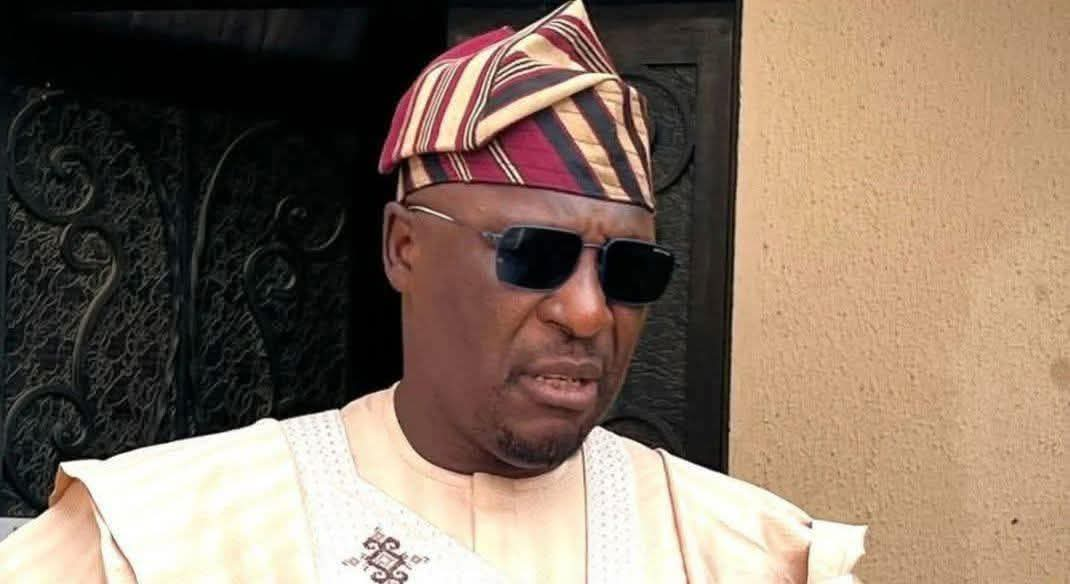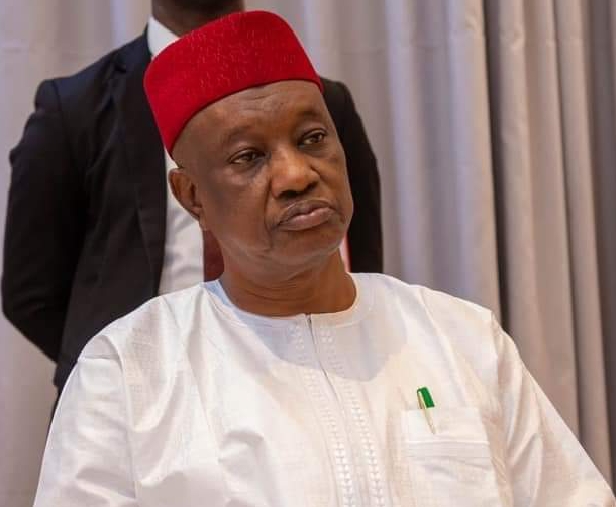Headlines
Antimicrobial Resistance in Focus: Urgent Call to Action for Healthcare in Kano

By Mukhtar Yahya Usman
Antimicrobial resistance (AMR) is one of the most pressing public health challenges of our time.
Defined as the ability of microorganisms—such as bacteria, viruses, fungi, and parasites—to resist the effects of medications that once successfully treated infections, AMR poses a severe threat to global health, food security, and development.
Understanding Antimicrobial Resistance

Dr. Yahya Usman Umar, the Head of the Department of Microbiology at Aminu Kano Teaching Hospital Kano, explains that antimicrobial resistance occurs when bacteria or other microorganisms evolve and adapt in ways that render antibiotics and other antimicrobial agents ineffective.
“This evolution is accelerated by the misuse and overuse of these drugs in humans, animals, and agriculture,” Dr. Umar states.
“When microorganisms become resistant, standard treatments become ineffective, leading to prolonged illnesses, higher medical costs, and an increased risk of death.”
The Danger of Antimicrobial Resistance
The dangers of AMR cannot be overstated. According to Dr. Umar, infections caused by resistant microorganisms are more difficult to treat, and they often require more expensive and toxic alternatives.
“The consequences of untreated or poorly treated infections can lead to severe complications and, in some cases, fatalities,” he warns.
“Moreover, the spread of resistant strains can trigger outbreaks, making AMR a significant concern for public health globally and in Nigeria.”
In Kano and other regions, AMR is exacerbated by several factors, including the widespread availability of antibiotics without prescriptions, improper dosages, and lack of awareness among the public about the dangers of self-medication.
“We are witnessing a scenario where common infections, such as urinary tract infections or respiratory diseases, are becoming increasingly difficult to treat due to resistant bacteria,” Dr. Umar notes.
Why Antimicrobial Resistance is a Public Health Threat
AMR’s status as a public health threat stems from its potential to undermine decades of progress in medicine.
“Without effective antimicrobials, the success of major surgeries, cancer chemotherapy, and organ transplants is jeopardized,” Dr. Umar explains.
“These procedures rely on the ability to control infections, and if our medications fail, the risks associated with these treatments increase dramatically.”
Dr. Umar also highlights that AMR can lead to longer hospital stays, a need for more intensive care, and a greater burden on healthcare systems already strained by other public health challenges.
“In low-resource settings like Kano, the impact of AMR could be catastrophic, as access to alternative treatments is often limited,” he adds.
The Way Forward: Combating Antimicrobial Resistance
Addressing the threat of AMR requires a multifaceted approach. Dr. Umar emphasizes the importance of strengthening antibiotic stewardship programs, which promote the appropriate use of antimicrobials.
“Healthcare professionals need to be trained on the judicious prescription of antibiotics, and the public must be educated on the dangers of self-medication and the importance of completing prescribed courses of treatment,” he suggests.
Dr. Umar also calls for improved infection prevention and control measures, both in healthcare settings and in the community.
“Reducing the spread of resistant infections can be achieved through better hygiene practices, vaccination, and the use of diagnostics to guide treatment decisions,” he explains.
Moreover, Dr. Umar advocates for increased investment in research and development to discover new antibiotics and alternative therapies.
“Given the slow pace of new drug development, we must also explore innovative strategies, such as bacteriophage therapy and the use of probiotics, to combat resistant infections,” he recommends.
Dr. Umar stresses that combating antimicrobial resistance is not just the responsibility of healthcare professionals but requires collective action from policymakers, the public, and global health organizations.
“We must work together to preserve the efficacy of our current treatments and ensure a safer future for all,” he concludes.
This special report is brought to you by Premier Radio in partnership with the Media EIS Fellowship

Headlines
Kano Govt delegation visits Portugal on study tour for light rail project

Nasiru Yusuf Ibrahim
A high-powered delegation from the Kano State Government is currently in Lisbon, Portugal, on a study tour as part of preparations for the proposed Kano Light Rail Project.

KANO FOCUS reports that the delegation is led by the Commissioner for Transportation, Barrister Haruna Isa Dederi, alongside the Chairman of the Kano Line Resuscitation Committee, Hon. Alhaji Saeed Abdullahi Shuaibu.

This was disclosed in a statement issued on Wednesday by Ibrahim Ado Sabari, Information Officer of Kano Line.
According to the statement, the team is engaging with leading transport and engineering institutions, including Mota-Engil and MTS – Metro Transportes do Sul, in Lisbon and Almada to gain technical insights into rail infrastructure development.
The study tour is part of the Kano State Government’s efforts under the leadership of Governor Abba Kabir Yusuf to establish a modern rail network within Kano metropolis and surrounding areas.
The proposed Kano Light Rail Project is aimed at improving urban mobility, reducing traffic congestion and stimulating socio-economic development across the state.
Officials from the Kano State Ministry of Transport and Kano Line are expected to study rail operations, maintenance systems, safety standards and sustainable transport financing models during the visit.
The delegation is also exploring opportunities for technical partnerships, knowledge exchange and possible investment collaborations to ensure the long-term efficiency and sustainability of the project.
Meanwhile, the Federal Government under President Bola Ahmed Tinubu has approved the sum of N1 trillion for the establishment of the Kano Light Rail Project under the Renewed Hope Agenda.
When completed, the project is expected to connect major residential, commercial and industrial hubs within Kano metropolis, create employment opportunities, facilitate trade and improve access to key urban centres.
The Kano State Government said it remains committed to delivering a modern, reliable and efficient rail transport system that meets international standards and addresses the growing transportation needs of residents.

Headlines
Majidadin Dambatta congratulates Doguwa on emergence as Kano APC chairman

Nasiru Yusuf Ibrahim
Alhaji Aliyu Lawan, popularly known as Majidadin Dambatta, has congratulated Alhaji Umar Haruna Doguwa on his election as Chairman of the All Progressives Congress (APC) in Kano State.

In a congratulatory message shared via Facebook, Lawan described Doguwa’s emergence as well deserved and expressed confidence in his ability to lead the party effectively in the state.
He also extended his congratulations to other executive members elected alongside Doguwa into various party offices, noting that their emergence reflects the trust and confidence reposed in them by party members and stakeholders across Kano State.
According to him, the development is a clear testament to the dedication, loyalty and commitment of the newly elected leaders to the unity, stability and progress of the party.
Lawan further prayed that Allah grants the new chairman and his team wisdom, strength and foresight as they assume the responsibility of steering the affairs of the APC in Kano State.
He expressed optimism that the new leadership would promote harmony, inclusiveness and effective leadership within the party, while bringing renewed vigour, unity and success to the APC in the state and beyond.

Headlines
Kano Assembly issues impeachment notice to Deputy Governor Gwarzo

Nasiru Yusuf Ibrahim
The Kano State House of Assembly has issued a notice of impeachment to the Deputy Governor of Kano State, Comrade Aminu Abdulsalam Gwarzo.

KANO FOCUS reports the notice followed the presentation of a report by the Majority Leader of the House, Hon. Lawan Hussaini Chediyar Yan Gurasa, during plenary on Wednesday. The sitting was presided over by the Speaker, Jibril Isma’il Falgore.
While presenting the report, the Majority Leader explained that the action was taken in line with Section 188 of the Constitution of the Federal Republic of Nigeria, which outlines the procedure for the impeachment of a governor or deputy governor.
According to him, the impeachment notice was endorsed by 38 members of the Assembly.
He further stated that once the notice is formally served on the deputy governor, he will have 14 days to respond to the allegations contained in the document.
The development marks the beginning of the constitutional process that could lead to the impeachment of the deputy governor if the procedure continues as stipulated by law.












